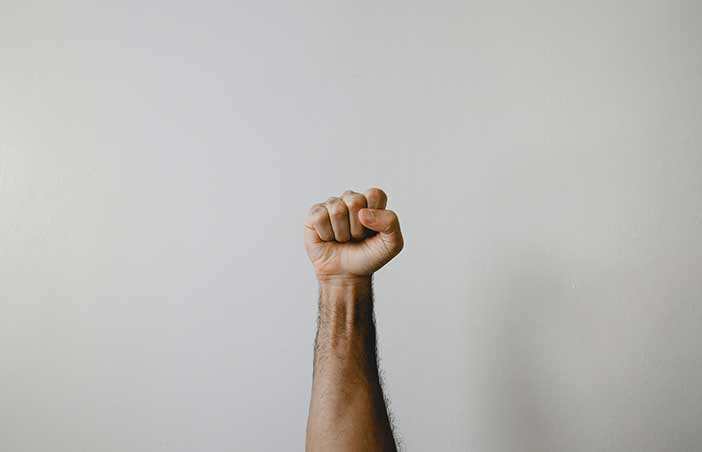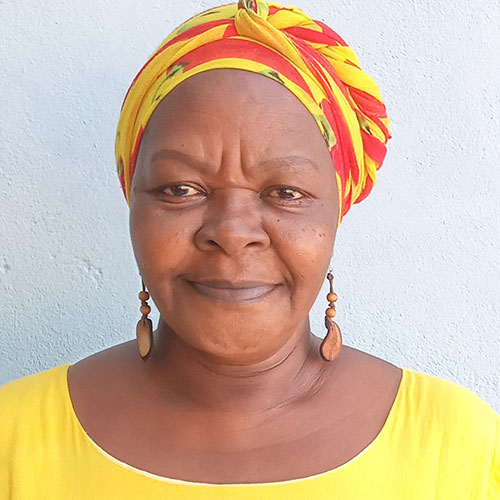Ponte para Pretxs initiative reaches more than 40,000 people and generates development opportunities
Created in 2016 as a Facebook group aimed at black people, it is currently a project by the Instituto Gueto and was organized to receive investments and share possibilities for educational and professional advancements


The Ponte para Pretxs project that started in June 2016 as a Facebook group aimed at black people, created by Vítor Coff Del Rey. According to him, the spelling of the name has a reason: “The name is Ponte para Pretos. At that time, a debate was taking place on gender and how to include gay transvestites because, until then, the ‘X’ was used as if to mark the option you wanted’. Today they use the ‘E’, so if we wanted to be assertive, it would be PretEs, but I call it the “Ponte Para Pretxs.”
Ponte para Pretxs is now a project of Instituto Gueto, which was founded after Ponte para Pretxs and operates under its CNPJ. The initiative was not born as a social project, but as a Facebook group, but it was so successful that it was later institutionally organised to receive investments.
Instituto Gueto was founded in 2019 by Vitor Coff Del Rey and Magda Gomes to meet this need, and Ponte para Pretxs became a project of the institute. Today, Instituto Gueto has three projects: Ponte para Pretxs, Escola da Ponte, and the Kilombu app, the latter entitled “The app for Black Entrepreneurs in Brazil”.
Ponte para Pretxs’s activities include the following:
- Disclosure of employment and work opportunities (employment is different from work)
- Postgraduate Scholarships
- Masters
- Specialization and vocational courses
- English, French, and Spanish courses
- career preparation
- Programming and Power BI courses
And career coaching, which is carried out by partners, who map the students’ careers based on the questions: ‘where are you?’ and ‘where do you want to go?’. With this, they outline the possible difficulties that may arise and how the student can prepare to overcome them, keeping the focus on their initial purpose.
“We have many cases of students who wanted to be doctors but ended up graduating as nursing technicians because they couldn’t get into medical school. So, we try to do our best for the student to reach his real goal”, explains Vítor. “We work with the idea that the person will be what they want to be and not what they can be. Usually, black people are what they can be, for lack of opportunity.”
At Escola da Ponte, free courses are offered through trails. On the language trail, there are English, French, and Spanish; on the personal development path, Social and Emotional Skills Development and Career Coach; on the design track, Design Thinking, Design Sprint, and UX Design; on the technology track, Power BI, programming in languages such as Blockchain, HTML, VBA, and Python, among others; in addition, on the trail focused on entrepreneurship and creative economy, there are classes ranging from Financial Education to Branding, Storytelling and Scenography.
How and why the project was created
Vitor founded the project after realising that he had access to several good and free courses, as well as numerous job opportunities, because he attended an upper-middle-class school, Fundação Getúlio Vargas (FGV), where the best information circulated in various ways. And, after establishing Projeto Ponte para Pretxs, he gained the support of Magda Gomes, who began as a teacher on the project before moving on to management, an area in which she still works today.
““I lived in Nova Iguaçu, in Baixada Fluminense, while attending this school. No one had access to the same privileged information that I did because I was where I was. So I began delivering this information to them, only to realize that it was insufficient because they also required qualification. The second step was to obtain professional certification, and the third was to connect them with large companies and excellent job opportunities”, Victor Coff Del Rey explains. “We founded the school to provide tools. Then we gave the famous access to the river because, there is that story of “If you give a man a fish, you feed him for a day. If you teach a man to fish, you feed him for a lifetime‘, but how do you buy the fishing rod to fish? How to get access to the river where the fish is? Nobody talks about it. This is carried out by Escola da Ponte.
Age group of beneficiaries
The project serves all ages starting at 15 years old, but most are between 15 and 29 years old.
Team
The team is made up of ten black people, eight women, and two men. Each of the members dedicates a little of their time to keep the institute alive. The goal is to get companies to fund the projects so that these people can devote their full time to them.
Vitor shares more details: “When the courses were in person, the team did all the work during the week, which was to call students, and, at the weekend, one part went to FGV, another to IBMEC, and another part to Armazém Cultural das Artes. We did this on Saturdays because that was our day off. As a result, we could spend the entire day coordinating the courses at our hubs. And the work of coordinating students was done from home through telephone and internet contact. When there was a need for a face-to-face meeting, we set an appointment at FGV, where I used to study and work, in a space provided by FGV”.
Compensation for staff and teachers
Vitor continues: “Teachers are volunteers, some receive financial assistance, while others only ask for the cost of transportation. The courses at Escola da Ponte are free, no student pays to study, and the project has never received funding to do so. When we started, we had 350 students divided between courses and a waiting list of over 5,000 people. In person, we worked in five different places within Rio de Janeiro: IBMEC, FGV, IFINET, Armazém Cultural das Artes and in the State Park Library. These institutions were our partners and contributed by providing space for the courses and some, in addition to spaces, also provided computers, internet and didactic material to the project so that classes could take place. Because they did not receive financial aid, the teaching staff spent their own money to teach the classes. We also couldn’t charge students because we were offering courses specifically for unemployed people who needed to improve themselves in order to return to the work ecosystem, which would be more difficult without our assistance.”
At the time mentioned by Vítor, the project had the assistance of two people: Regina Chiarardia, sociologist and also Vitor’s godmother, who paid for the transportation of the Excel teacher, and Theo Van Der Loo, who was the CEO of Bayer at the time and provided monthly assistance to the project. With their donations, it was possible to cover the costs with the Institute’s CNPJ. Other than that, they received no financial support from anyone. Escola da Ponte currently receives no funding and all work is done on a volunteer basis.
So far, 13 courses with 15 classes have been held, benefiting 3,000 people directly. The English course has Basic, Intermediate, and Advanced modules, and with that, it is necessary to form several classes.
Project Maintenance
To maintain the project, the Gueto Institute lives by providing services to companies that want to hire. Companies pay the Institute for services and the money is used to finance classes at Escola da Ponte. It can be said that the Institute is self-sustaining, but it is still not possible to remunerate the professors.
The services provided are: consulting, racial literacy, recruitment and selection, permanence management and tone of voice management.
Instituto Gueto also has a very interesting partnership with the company Gooders, which offers vouchers that volunteer teachers can use when making purchases with discounts at partner stores. It is a way, not to remunerate the teacher, but to somehow pay back for their time.
Challenges
The biggest challenge, says Vitor: “It is to continue doing this job without money, being a father, a husband, having to pay bills and doing all this well. We work on projects with Facebook and Google; how do you work on projects for companies of this size efficiently so that you can keep doing them in the future? Our most difficult challenge is managing and maintaining high performance. And we must pay for management to perform well because people must invest time, technology, structure, and equipment.”
Victories
Vitor says that the biggest accomplishment is the number of people who have already graduated, the number of people who are working and earning very well, because they went through the school’s training and the fact that they are respected and have credibility in the market.
“Victory is also for us to be able to sit at a meeting table with Apple, with Facebook, with global companies, with millionaires, and when they look at what we are doing, they feel the desire to join us and hire our services. That’s a victory. And, of course, maintaining the level of management entails continuing to succeed.”
Assistance to beneficiaries during the pandemic
The project managed to provide 700 people affected by the pandemic with 700 food handouts. “We did a very intense job of accessing information on how to register to receive Emergency Aid, receive the instalments and we also spread information on other initiatives that were donating money and hygiene materials to people in the community that were impacted by the pandemic.”
Today, Ponte para Pretxs is considered as the largest initiative in Latin America in free English teaching. There are 1400 free English students and 80 teachers, and a Law and Technology course with 20 students will start soon: as well as a Marketing Science course in collaboration with Facebook.
Yiago Rodrigues, a 25-year-old videomaker born in Rio de Janeiro, currently living in São Paulo, gives his testimony:
“I got to know Ponte para Pretxs through the Facebook group where I felt very welcomed, as if I part of a family. For me, the project represents an opportunity: an opportunity to learn, an opportunity to go further. Through Ponte Para Pretxs I learned a second language; I discovered that black people are an unified force and that I could see other opportunities.”.
Sheila Aragão, 35-year-old university professor and researcher, resident of São Paulo:
“I am part of a WhatsApp group for the empowerment of black women, where we share knowledge, courses, job openings, and general assistance. And it was in this environment that I discovered Ponte para Pretxs, which was a watershed moment for me. First, because my college classes were being reduced, and in December I began looking for a job more aggressively, knowing that I would have a doctorate to pay for. At the end of January, while dealing with a difficult personal situation, I desperately needed a job that, if possible, would also have something to do with my life purpose. Ponte Para Pretxs assisted me in turning around and recognising my worth as a professional and as a human being”.
Do you like the project and want to help?
Donate through the Campaign:
https://abacashi.com/p/escola-da-ponte-para-pretxs
Or through the account:
Account Data
Bank: 655 – Votorantim
Agency: 1111
Account: 62264674 – 3
CNPJ: 37.316.483/0001-48
Name: Instituto GUETTO, Gestão Urbana de Empreendedorismo Trabalho e Tecnologia Organizada
More information: https://www.guetto.org/sobre



